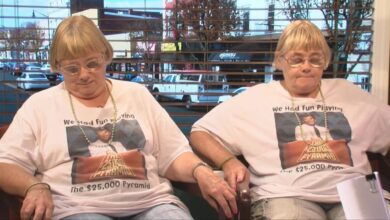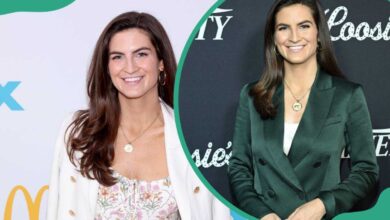King Charles III becomes monarch after death of mother, Queen Elizabeth II
The terrible truth that his cherished mother’s passing will result in the biggest change of his life—from heir to king—was confronted by Prince Charles and the Queen in Balmoral.
After thereafter, on Thursday afternoon, Buckingham Palace made the announcement that she had died away.
The 73-year-old Charles, now King Charles, has been in line for the throne for seven decades, which is by far the longest wait in British monarchy history. He has never wanted to discuss the moment it ends in public, and neither have his courtiers. The possibility of the Queen’s passing has long been regarded as a source of deep personal sorrow.
According to a former staffer, “He never wanted to think about accession because it meant the death of his mother.”
However, the role of heir that has defined Charles’s life from the age of three, when his mother ascended to the throne in 1952, appeared to be approaching, with the Queen’s doctors expressing concern for her health and her other children and grandchildren rushing to be with her.
Charles’ life will soon enter a brand-new, ineluctably briefer chapter. He will be able to respond to a question that has followed him for decades: what kind of king will he be after a lifetime of loud interventions in public life as the monarch of the United Kingdom and 14 Commonwealth realms from Canada to Australia?
In the immediate days he faces the twin challenges of personal bereavement and leading the nation in mourning.
“He will be focused on the personal and the family, but for the palaces it will be a question of [choosing] the right things to say and do that lead the nation in mourning but also establish the first steps of the new reign,” said another former aide.
Charles, they added, had a “deep emotional facility” with bereaved people, which they predicted would serve him and the country well in any period of mourning.
On Thursday, the focus of attention was squarely on the family as the Queen’s children and grandchildren gathered around the Queen. The Duke of Cambridge, who is in line to become the Prince of Wales and first in line to the throne, rushed from Berkshire to Balmoral, while Kate, Duchess of Cambridge, remained in Windsor to take care of their children, George, Charlotte and Louis, who had their first full day at their new school.
Now his father has become king, the Duke of Cambridge will also take on the responsibility, and multimillion-pound income, of the Duchy of Cornwall estates.
The Queen’s second son, the Duke of York (who remains stripped of royal duties over his links to the convicted sex offender Jeffrey Epstein), and the Earl and Countess of Wessex were on the same RAF plane as the Duke of Cambridge, which touched down in Aberdeen just before 4pm.
The Princess Royal, the Duchess of Cornwall, who will soon become the Queen consort, and the Prince of Wales joined them at Balmoral. Charles reportedly made routine morning visits to see his mother as she continued to suffer mobility issues as the couple recently performed engagements in Scotland.
Scotland was also being visited by a representative for the Duke and Duchess of Sussex, who are now in the UK on a trip from their home in California. They had been scheduled to go to the WellChild awards gala on Thursday night in London. Harry would be traveling alone, according to a later report from the Press Association news agency.
It was only in April 2021 that Charles lost his father, Prince Philip, who died aged 99 at Windsor Castle. His “dear papa”, he said shortly afterwards, “was a very special person”.
The family’s younger members are increasingly handling royal responsibilities. In response to the Queen’s desire, William and Kate have elevated their profile by taking on official positions. For instance, the Duke of Cambridge opened the Church of Scotland’s general assembly last year in his capacity as lord high commissioner.
In a period of significant political and social upheaval, Charles will assume a role that is designed to stand for stability in times of change. But he will hope to succeed given the decades of active duty he has had as the Prince of Wales. Not to mention, he will be the first British king to have attended school, representing a different generation from the Queen while being older.
The new king has developed a network of charities and causes that have connected him to at least some of the worries of common British people and brought him into conflict with others. He has also dealt with numerous British governments and met a large number of foreign leaders.
He transformed his personal court into a sort of grand salon for bringing together the influential, bringing together businessmen, religious leaders, and politicians to address concerns like sustainability and urban redevelopment. His opinions on complementary therapies, architectural design, and farming have occasionally brought him into conflict with other members of civic society, but he has positioned himself as a sort of tribune of the people, reflecting what he believes to be the quiet majority’s views.
In 2014, one courtier who has known Charles for many years asked by the Guardian to suggest what kind of king he will be, said: “He will be true to his beliefs in his contributions. Rather than a complete reinvention to become a monarch in the mould of his mother, the strategy will be to try and continue with his heartfelt interventions, albeit checking each for tone and content to ensure it does not damage the monarchy.”
As recently as June, amid reports Charles had expressed views opposing the UK government’s policy on deporting asylum seekers to Rwanda, Clarence House issued a statement saying he would remain “politically neutral” as monarch.




